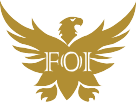
Q&A with Lew Douglas of Urth Agriculture
Founder and CEO
Principal Series:

Family Office Insights is a voluntary, “opt-in” collaborative peer-to-peer community of single family offices, qualified investors and institutional investors. Join the community here www.familyofficeinsights.com
How is Urth Impacting Climate Change?
Given our experience over the last four years as being one of the few organic, microbial based input companies supplying conventional Big Ag, we see Urth as a driving force for Big Ag in the transition to regenerative ag practices, which are essential to reducing the impact of climate change.
Urth provides solutions for the many issues facing Big Ag, including increasing soil fertility and its ability to store carbon effectively. We believe that healthy, fertile soil is the best way to combat climate change and eventually contribute to its reversal.
Urth understands the potential impact that large conventional growers can have on the end goal of carbon sequestration. To have a significant impact on carbon drawdown, we believe we must educate conventional growers on the benefits of regenerative ag practices. Upon implementing these practices, growers will experience increased crop production and quality, decreased pest pressures and decreased operating expenses through the reduction of soil amendments and pesticides.
Urth lives in the world of Big Ag, whose main focus is on increasing production and profitability. We have experienced, first hand, Big Ag’s resistance to change. In 2019 we anticipate working with 125 very large domestic and international farms, along with several international brands. Because we are on so many large conventional farms, we know that the required paradigm shift around regenerative ag practices will be achieved through incremental changes over a multi-year period.
Big Ag’s road to regenerative ag and carbon sequestration starts with our belief that any approach needs to focus on incremental change, not paradigm shifts. Most importantly, it is a multi-year process that will ultimately drive results. Given the low levels of organic material in Big Ag’s soil, there is no one product or practice that is a silver bullet for immediate carbon sequestration.
Phase 1 of this process entails the use of our microbial products and the resulting positive impact on the bottom lines of the largest industrial farms. Phase 2 includes continued use of Urth products along with the reduction of synthetic NPK fertilizers. We educate farms in Phase 1 and 2 about what nutrients are present and bio-available in the soil, the reduction of conventional inputs, the importance of high BRIX (a measure of total soluble solids in the plant), improved nutrient density of crops, the reduction in pest pressure and the increase in soil organic matter (SOM). Increased SOM provides food for microbes, reduces compaction, increases water infiltration rates and water holding capacity. This education is all under the umbrella of significantly increased profitability. Phase 3 includes further focus on methods of building SOM, implementation of composting, cover crops, and low-till/no-till practices. Phase 4 is the integration of full regenerative ag practices and maximum carbon sequestration.
Regenerative ag and carbon sequestration are the ultimate goals of this process with Big Ag, which has the greatest leverage globally to combat climate change and ultimately contribute to its reversal.
What Is Urth’s Largest Competitive Advantage?
We believe our Riskless Trial program, which demonstrates the positive impact of our microbial based products on production and profits, is a significant competitive advantage. The farms have no economic risk under the Urth program. Urth fronts all costs and the farms only pay, post-harvest, if mutually agreed upon outcomes are achieved. The Riskless Trial is outlined via a 12-page MOU/LOI that details the budget, product application calendar and soil analyses. All Riskless Trials start with a soil analysis and interpretation that details which nutrients are present and bioavailable. This analysis drives the application protocols and the Urth products used in the trial. This analysis also starts to educate the farmers on the benefits of microbial products. An ancillary benefit of our Riskless Trial program is unrestricted access to farms and their personnel. This gives us more opportunities to learn about their operation and challenges. Through our Riskless Trial program, Urth now has a valuable data base covering 28 different crops in varying geographies, climates and soil conditions. These 28 crops, from cotton to table and wine grapes to kiwis, are high value. We can leverage this database to drive future sales.
How Has Urth Been So Successful Opening Up Large Farms On The West Coast?
As noted earlier, Urth works with 125 large farms, most of which are on the West Coast. The following recaps the philosophy we bring to Big Ag every day:
- Focus on farm profitability.
- Protect farm cash flow by overlaying Urth’s program on their existing protocols.
- Make it easy for the farm CEO to say YES.
- Make it easy for the farm manager to say YES.
- Educate the farm manager and crew.
- Make it easy to adopt, implement and test our products with a “plug and play” format.
- Make the jobs of the farm manager and crew easier by Urth monitoring treatment protocols, field observations, tracking improvements in yield, etc.
- Help farms with their biggest headache by asking for their worst ground.
We rarely see competition from other microbial offerings, as the majority of our sales are to large conventional farms. The organic fertilizer companies tend to focus on organic farms. We also believe we are unique in our ability to open the biggest industrial farms on the West Coast, a result of our combination of selling directly to the CEOs and offering our Riskless Trial program. Our perceived competition, Midwest Bio Ag and Indigo, is focused on the Midwest and on commodity crops and neither has a West Coast presence.

